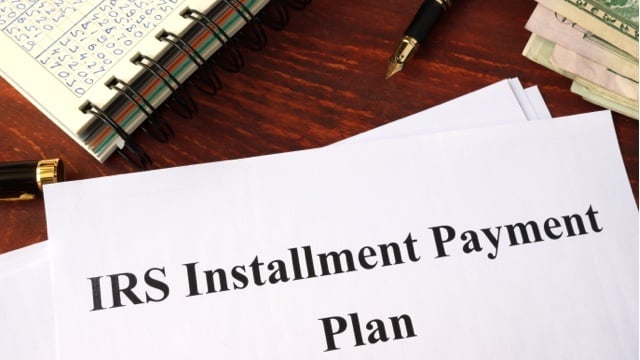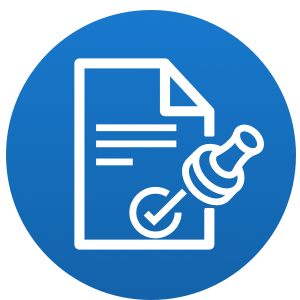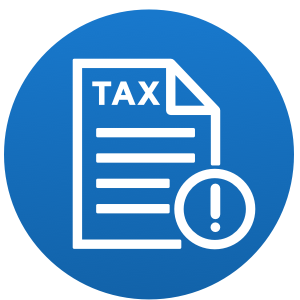- Find an office
-
File Your Taxes
 Find a Location
Find a Location -
Resolve Tax Issues
 Resolve Tax Issues
Resolve Tax IssuesResolve Tax Issues
-
Tax Resources
 See all Tax Help
See all Tax HelpTax Tools
Tax Tips & Resources
- Where's My Refund
- Refund Advance
- Promotions & Coupons
- Hiring Local Jobs!
- Careers
- Search
- Contact Us
- Feedback
-
 Log in | Sign up
Log in | Sign up

JH Accounts
|
|
Oh no! We may not fully support the browser or device software you are using ! To experience our site in the best way possible, please update your browser or device software, or move over to another browser. |
Tax help and resources
Find useful tax tips and filing information. For personalized and expert support, see your local Tax Pro today.
TAX TALK LIVE
Self-employment taxes explained
Featured
How to get a bigger tax refund in 2024
If you want a bigger tax refund in 2024, or any other year, you may be able to get it by changing your filing status or claiming credits and deductions you may be missing out on.
Browse all tax topics
Tax calculators
-

1040
Basic income tax calculator
-

EITC
Earned Income Tax Credit calculator
-

Estate tax
Inheritance tax calculator
-

Self-employed
Social Security & Medicare tax calculator
We've got you covered
Tax topics and tips
Employment

Home Business and Office Tax Deductions
See if you qualify for any tax breaks for operating a business from your home.

How unemployment can affect your tax return
We know how difficult unemployment can be. Here’s what you need to know before filing your taxes this year.

Changes to Job-Search Deductions
Tax reform suspended deductions for job hunting, moving for a job, and job-related expenses. These expenses are no longer deductible for tax years 2018 through 2025.
Self-employment

Self-employment taxes explained
Congratulations, if you’re self-employed. This means extra income—and some of the best tax write-offs and tax benefits, too. But if you don't know the rules, you're likely paying too much in taxes. This video is a must-watch if you drive for rideshare companies like Uber or Lyft, sell things on Facebook Marketplace, Etsy, Ebay, or work any kind of side gig. These self-employment filing tips can lead to tax savings.

How a second job or side gig affects your taxes
Call it what you will: a side job, side hustle, freelance gig—they all affect your taxes and tax status.

Tax tips for DoorDash, Grubhub, and Uber Eats food delivery drivers
Food delivery is here to stay. And you may be one of the many Americans working for these food delivery services, like DoorDash, Uber Eats, and Grubhub. If you are already doing this, or thinking of joining to make some spare cash, you may have questions about what you may have to pay in taxes at the end of the year. Continue reading to find out about tax rates, deducting business-related miles, and more.
Health and medical

Patient Protection and Affordable Care Act
Enacted in 2010, the Patient Protection and Affordable Care Act (ACA) is health insurance reform that affected every American. In 2017, the Tax Cuts and Jobs Act (TCJA) was passed that eliminated the federal penalty for taxpayers who didn’t have health insurance.

Tax Reform and Healthcare
Thanks to tax reform, starting in 2019, the federal penalty for not having health insurance will be $0.

Advanced Premium Tax Credit
Are you having a difficult time affording healthcare coverage through an employer? You might be eligible for the Advanced Premium Tax Credit, designed to help you and your family get affordable healthcare.
FEATURED
What happens if you lie on your taxes?
The consequences of committing tax fraud vary from case to case. There are generally 5 different potential consequences, ranging in severity.
We've got your back
Back taxes and tax debt
Guide to tax debt and relief
When you owe back taxes, it can be overwhelming. We can help you better understand everything so you can get back on track.
Expert help to resolve IRS problems
Whatever your tax issues are, our experts will develop a clear plan to stop the stress and get you back on track.

How to resolve back tax returns
If you don’t file a required tax return by the deadline, it’s called a back tax return, an unfiled return, or past-due return. You can face consequences with the IRS if you have back tax returns.

Penalties for not filing or filing late tax return
Taxpayers who file a late tax return and have a balance due can face significant monetary penalties. Taxpayers who willfully fail to file can also face criminal sanctions.

How to set up an IRS payment plan or installment agreement
There are few things more concerning than owing the IRS money. Unexpected debt is a problem millions of Americans face. When it comes to tax debt, you have several options, including an IRS payment plan.
OUR EXPERTISE ON YOUR SIDE
Grow your tax knowledge and confidence
-

Learn about audits & notices
Learn about audits & notices
-

Learn about CP2000 notices
Learn about CP2000 notices
-

Learn about IRS penalties
Learn about IRS penalties
-

Learn about back taxes
Learn about back taxes
-

Learn about unfiled taxes
Learn about unfiled taxes
Because trust, guarantees, convenience & money all matter

-
TRUSTED GUARANTEES.
Be 100% certain about your money & your taxes, year after year.
-
NATIONAL PRESENCE. LOCAL HEART.
We’re in your neighborhood & inside your favorite Walmart store.
-
40+ YEARS. 60+ MILLION RETURNS.
The kind of trusted expertise that comes with a lifetime of experience.




